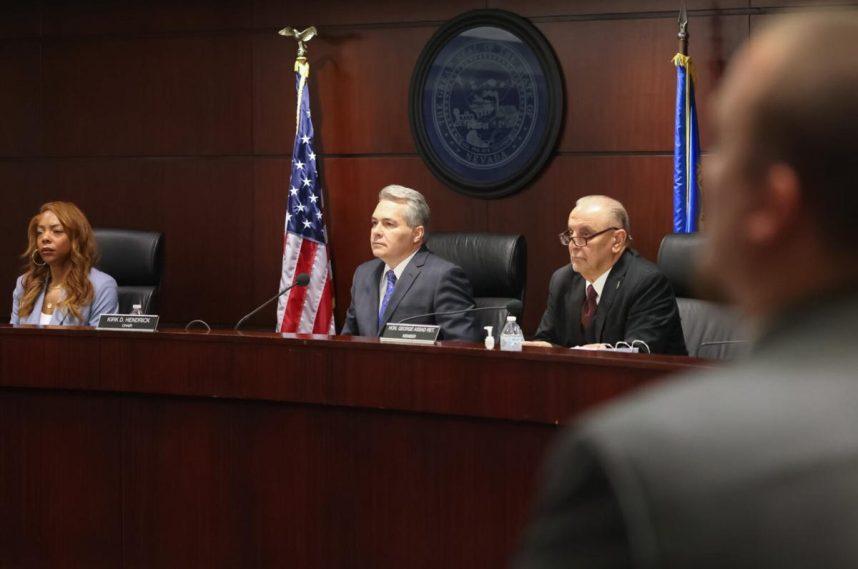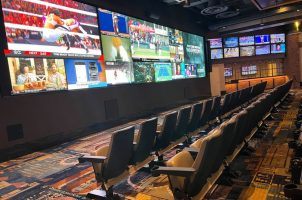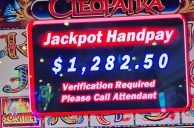Nevada Gaming Control Board Rules Against PropSwap, Sports Betting Ticket Exchanges
Posted on: May 24, 2024, 11:10h.
Last updated on: May 24, 2024, 11:44h.
The Nevada Gaming Control Board (NGCB) has once again ruled against PropSwap and the concept of allowing companies to facilitate the trading of sports bets.

The NGCB on Thursday voted to dismiss a proposed amendment to Regulation 5.240 to create a new category of service provider in the state’s legal sports gambling industry.
PropSwap, Inc., a Chicago-based firm, asked the regulatory agency to form a “betting ticket resale service provider” class and deem it suitable to run a buying and selling sports betting ticket exchange online.
The three-person NGCB on Thursday raised various concerns in opting to forego the new sports wagering licensing category. NGCB Chair Kirk Hendrick, who was appointed to the role in January 2023 by Gov. Joe Lombardo (R), said he would support revisiting the issue in the future but for now, the regulatory add-on isn’t warranted.
Board Decisions
Hendrick said such an adoption could spur more sports ticket exchange entities into seeking entry in the state, and that’s something the state at present doesn’t want or need.
I’m a big believer in new concepts and entrepreneurship … but I have a number of concerns about this activity in Nevada. Is this something the Nevada gaming industry needs and customers in Nevada need and want?” Hendrick asked.
PropSwap operates in more than 20 states. The company allows sports bettors to sell a ticket that is unsettled to cash in early.
As an example, a bettor who risked $100 before the start of the NFL season on the Cleveland Browns winning the Super Bowl at 40/1 odds might sell the bet ahead of the big game that the Browns surprisingly reached. The original bettor is guaranteed a win and the new bettor’s potential payout is better than what sportsbooks offered after the Browns’ line shrunk amid the team’s playoff run.
PropSwap charges a 10% commission on the sale price. The exchange also charges a 3% fee on account deposits.
NGCB members raised issues with how the exchange might be used to launder money and voiced worries about PropSwap not having the same know-your-customer safeguards as the state gaming industry requires of its licensees.
PropSwap attorney Marc Rubinstein countered that it’s much more difficult to launder money digitally than with cash. He explained only credit cards, debit cards, and bank transfers are allowed, which creates an easily trackable financial trail.
Hendrick also wondered if there’s enough demand to warrant issuing licenses and regulations for sports betting ticket exchanges. Many bettors who have a futures bet that’s looking good often hedge their bet to assure a net payout.
Why wouldn’t Nevada licensees do it themselves?” Hendrick asked.
Rubenstein answered that there might not be enough “juice” for sportsbooks to handle additional overhead in facilitating the exchanging of tickets among bettors. Rubenstein said the business viability shouldn’t be a factor in the NGCB’s decision.
“This is a question of business judgment,” the attorney defended. “If the casinos felt it would be in their best business interest, they would do it themselves.”
PropSwap Operations
According to the company’s website, PropSwap is operational in 23 states, including Arizona, Arkansas, California, Colorado, Georgia, Connecticut, Florida, Illinois, Indiana, Iowa, Kentucky, Louisiana, Maryland, Mississippi, New Hampshire, New Jersey, New York, Ohio, Pennsylvania, Tennessee, Texas, Virginia, and West Virginia.
Some of those states have licensed PropSwap a unique sports wagering license, but most have ruled that a gaming concession isn’t needed because no new bets are created on the platform.
Related News Articles
MGM Springfield Sports Betting Application Late, State Makes Concession
Massachusetts Gaming Regulators Delay Sportsbook Votes on Various Concerns
Danish Sports Bettors Must Present ID Cards When Placing Bets Under New Law
Nevada Oddsmakers Squeak Out Super Bowl Win to Continue Streak
Most Popular
VEGAS MYTHS BUSTED: Vegas Heat Melts Traffic Lights
Most Commented
-
Three Gamblers Lose $24M Total at Las Vegas Casino
— May 22, 2024 — 6 Comments
















No comments yet